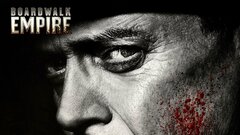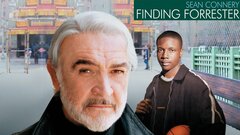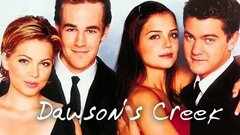Though he was on the precipice of becoming just another teen idol, thanks to his recurring role of high school football player Henry Parker on "Dawson's Creek" (The WB, 1998-2003), actor Michael Pitt turned instead to gritty performances in independent movies like "Hedwig and the Angry Itch" (2001) and "Bully" (2002). Because of his eye-catching roles in those two films, Pitt was able to breakthrough into studio fare like "Murder by Numbers" (2002) and "The Village" (2004). Not wanting to be trapped in unchallenging parts, the actor continued to expand his range in the indie world with turns as a reclusive man who descends into madness in "Rhinoceros Eyes" (2003) and as a troubled rock star modeled after Kurt Cobain in Gus Van Sant's "Last Days" (2005).
Following major roles in the showbiz satire "Delirious" (2006), the heartbreaking romantic drama "Silk" (2007), and Michael Haneke's shot-for-shot remake of his thriller "Funny Games" (2008), the versatile Pitt became a series regular on the acclaimed television drama, "Boardwalk Empire" (HBO, 2010-14), which only underscored the young actor's wide-ranging talents and appeal.
Born on April 10, 1981 in West Orange, NJ, Pitt announced to his parents that he wanted to be an actor when he was just 10 years old after the thrill of performing on stage while away at summer camp. Having been kicked out of three different high schools, Pitt moved across the Hudson to live in a cramped one-bedroom apartment in Chinatown with nine other people and to try his hand at an acting career. To make ends meet, he worked as a bicycle messenger while taking weekend classes at the American Academy of Dramatic Arts, where he met a professor who became his mentor, Bill Bartlett.
Following his television debut on the daytime soap "All My Children" (ABC, 1970- ), Pitt had guest spots on "Dellaventura" (CBS, 1997-98) and "Law & Order" (NBC, 1990-2010) before making his feature debut with an uncredited role as a dance student in the indie drama "54" (1998). He had another small part in "The Hi-Life" (1998) before making his off-Broadway debut in the Depression-era drama, "The Trestle at Pope Lick Creek" (1999). Pitt earned generally positive notices for his performance as an impressionable young man who comes under the spell of a slightly older woman (Alicia Goranson).
Pitt was spotted by a casting agent during a performance of "Trestle," which led to the actor landing the role of football player Henry Parker for the third season of "Dawson's Creek" (The WB, 1998-2003). From there, he found regular television work, though, despite a steady paycheck, he was often unimpressed with the artistic quality. After a small role as a student in Gus Van Sant's character drama "Finding Forrester" (2000), Pitt was tapped by novice director Faye Dunaway, who cast him in her first directing effort, "The Yellow Bird" (WE tv, 2001), which was based on the Tennessee Williams play of the same name.
Pitt next had his breakout role with a strong turn as Tommy, a shy Christian teenager and military brat with singing aspirations who becomes a rock star under the tutelage of an East German transsexual, only to betray his mentor in the terrific rock musical "Hedwig and the Angry Inch" (2001). Following rapturous acclaim at the Sundance Film Festival, Pitt was tagged as one to watch. He solidified his rising star status with a chilling, but darkly humorous performance as a perpetually drugged out Florida teen who goes along with his old girlfriend (Bijou Phillips) when she agrees to participate in a murder in Larry Clark's disturbing "Bully" (2001).
Thanks to the attention he received from "Hedwig" and "Bully," Pitt landed bigger studio movies, starting with a co-starring role opposite Sandra Bullock in the average thriller "Murder by Numbers" (2002). Also that year, he returned to off-Broadway stages to appear in "Monster" (2002), which was loosely based on Mary Shelley's Frankenstein. In the psychological drama, "Rhinoceros Eyes" (2003), Pitt played an eccentric recluse employed at a prop house who is infatuated with a set designer (Paige Turco) to the point of violence to appease his unrequited love. After playing an American exchange student caught in the midst of the 1968 Paris riots and an unusual love triangle in "The Dreamers" (2003), Pitt had a small role in "The Village" (2004), M. Night Shyamalan's thriller about a 19th century village held at bay by a race of strange forest creatures.
Pitt next reunited with Gus Van Sant for a fictional recounting of the decline and fall of troubled rock star Kurt Cobain in "Last Days" (2005). Playing an increasingly pressured and isolated artist named Blake, Pitt gave a fine turn in a film that borrowed liberally from Cobain's tortured life.
Continuing to expand his acting range, Pitt played the autistic son of a woman (Rusty Schwimmer) who has opened her home to her emotionally stunted brother (Paul Giamatti) in the rather downbeat drama, "The Hawk is Dying" (2006). In "Delirious" (2006), director Tom DiCillo's wry showbiz satire, he was a homeless man with acting aspirations who latches on to a sleazy paparazzo (Steve Buscemi) in an attempt to further both their careers. He followed up with the foreign-made "Silk" (2007), starring as a young Frenchman who smuggles silkworms from Japan, only to become unfaithful to his wife (Keira Knightley), all of which leads to tragic results. Pitt next played a sadistic killer who, along with his friend (Brady Corbet), torture and eventually kill a suburban couple (Tim Roth and Naomi Watts) after a series of psychological games in Michael Haneke's shot-for-shot remake of his own "Funny Games" (2008).
Back on television in his first regular series role, Pitt was the protégé of Enoch "Nucky" Thompson (Steve Buscemi), a political figure and gangster who rose to prominence in Atlantic City during the Prohibition Era in the acclaimed drama from Martin Scorsese, "Boardwalk Empire" (HBO, 2010-14).

























































































































































